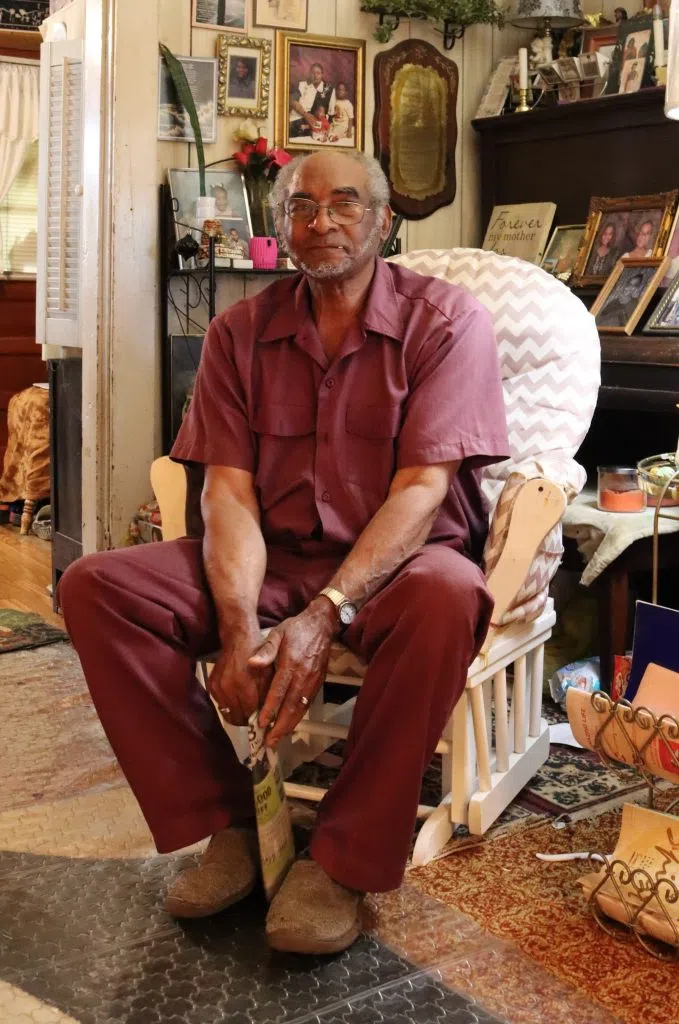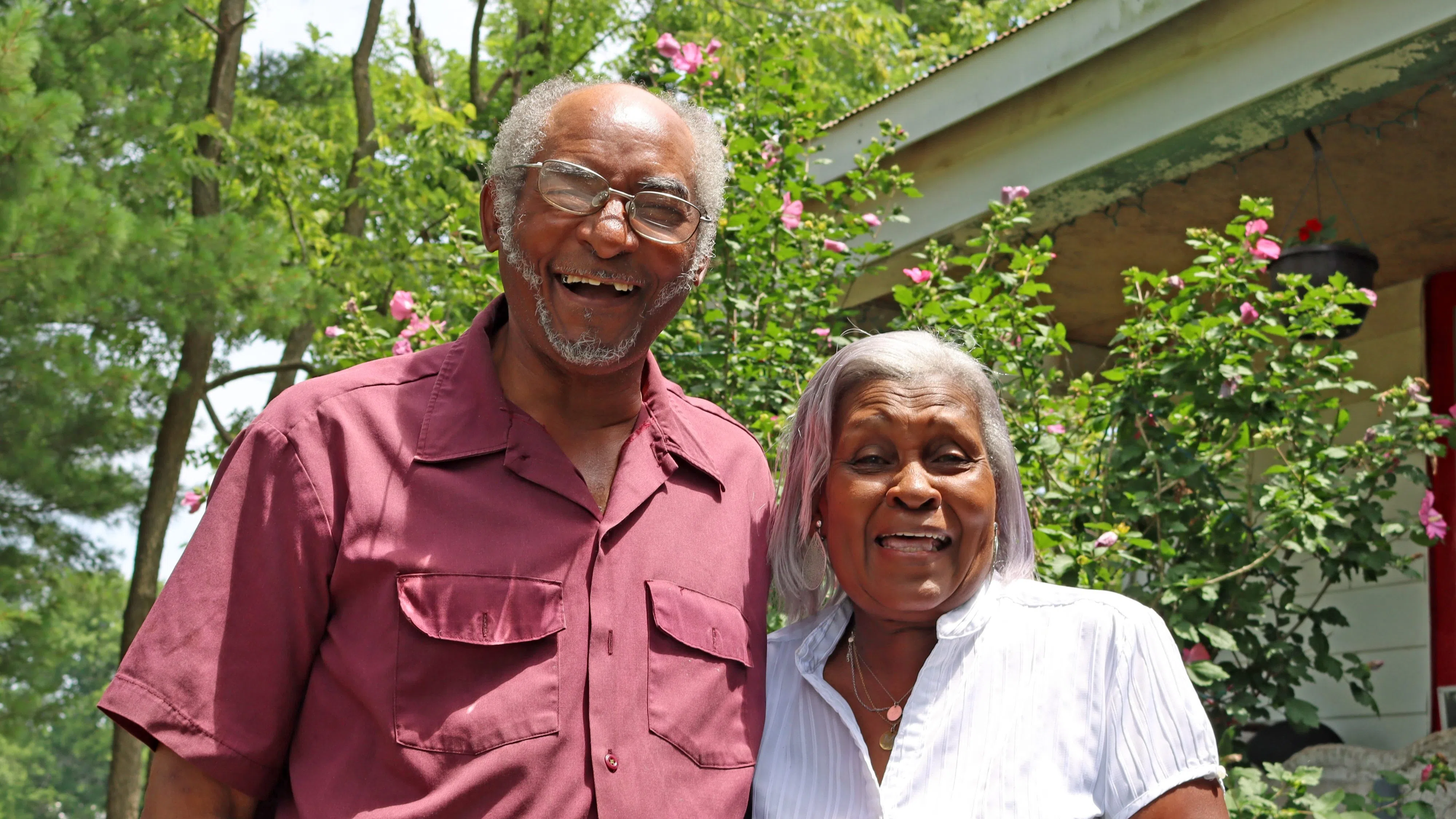By MELINDA J. OVERSTREET
for Glasgow News 1
Louis Douglas Barbour gives sole credit for his coming through his cancer journey to his god, acknowledging that physicians and other healthcare professionals had a hand in it, but believing with all his heart that his lord was working through them.
“I’m not discounting doctors, now,” he said. “He gave them knowledge to do what they do, as far as they can go.”
He generally goes by his middle name but doesn’t fuss when people use his first name because, after all, that’s the one on his Social Security card, he said. He lives with his wife, one of their daughters and a granddaughter on the farm in eastern Hart County that his father, along with one of his foster brothers, purchased about 90 years ago.
“I’ve been a farmer all my life,” he said.
He’s mostly retired from that work, but he still lends a hand as he can. His oldest son, who lives nearby, does almost all the farming there now.
For about four decades of his 77 years, he’s also been a Baptist minister, a role he said he resisted for about 10 years.
He came to a time when he wanted to stop smoking, a habit he started “slipping around” with in his preteen years and had made a regular thing by the time he was about 15. At this point, he was 30, and he didn’t think he could do it on his own.
He said he had sensed that his god wanted him to become a preacher.
“I didn’t want to, and I thought I’d give him a chance to do that I knew he couldn’t do,” Douglas said. “I thought I’d get out of preaching. I said, ‘Now, if you really want me to preach, help me quit smoking. And it just fell off like that. … When I quit, cigarettes was 50 cents a pack. And now look what they are, over $5 a pack.”
He later became the pastor at Buffalo Baptist Church in LaRue County, staying with that job around 35 years, including when he was battling cancer, and the congregation rallied around him.
“They was great; they suffered me through it,” he said. “You know, when I was sick, some Sundays, I just barely [could] make it to church. … I tried to preach; probably sometimes it wasn’t very long, but they didn’t want to give me up.”
Now, Douglas said, he’s no longer a pastor, but “you never retire from preaching.”
Bringing it to light
Forty-two or so years after he stopped smoking, in 2019, Douglas had a persistent cough that developed. He’d had pneumonia some years prior to that in his left lung, so that’s what he thought it was – a bad cold – so he put off going to a doctor.
“I guess I waited ‘til the last minute,” he said.
His wife Maggie said he waited until their kids “got on him” about taking care of it.
“I was losing weight; no appetite. … In all, I think I lost 39 pounds, wasn’t it – something like that?” he asked his wife, who confirmed simply with a nod. “You know, I’ve heard that saying all my life, ‘Look like death eating crackers.’ Well, that’s what I looked like.”
X-rays provided the initial revelation of a different underlying issue in his left lung that was later diagnosed as Stage 3 non-small-cell lung cancer.
According to the Yale Medicine website, “NCSLC is the most common type of lung cancer. Like all cancers, NSCLC begins at the cellular level and causes abnormal cells in the lungs to reproduce rapidly and out of control. NSCLCs are carcinomas, which are cancers of the cells lining the surface of the lung airways. These include the bronchi, bronchioles and alveoli.”
“The big word was inoperable,” Douglas said. “You hear that and ….”

Louis Douglas Barbour discusses his experience with cancer at his home in eastern Hart County. Melinda J. Overstreet / for Glasgow News 1
After asking Maggie to remind him how long the doctors had thought he might live, he repeated the time frame of six months to a year, “without the lord intervening, but he intervened, and after treatments, it’s in remission, I think going on four years … by the help of the lord.”
Douglas said he was told that smoking – either his own or someone else’s secondhand or some combination of those – was the cause of his cancer.
According to the National Cancer Institute website, smoking is the major risk factor for non-small-cell lung cancer.
“Smoking cigarettes, pipes, or cigars, now or in the past. This is the most important risk factor for lung cancer. The earlier in life a person starts smoking, the more often a person smokes, and the more years a person smokes, the greater the risk of lung cancer,” the site states as the No. 1 item in the risk-factor list, with No. 2 as exposure to second-hand smoke.
A handful of other factors are listed as well, with the notation that, “When smoking is combined with other risk factors, the risk of lung cancer is increased.”
Douglas said he believed that from diagnosis to the end of the chemotherapy, which included immunotherapy, and radiation treatments, which he had concurrently with the chemo in an alternating fashion, the process took a little longer than a year, but he doesn’t recall now how many of each he had.
Douglas said he didn’t have a really bad time with the treatments, although he did experience nausea. He would get a steroid shot the day before that would “hype me up,” but then the chemo would drag him down. Some of the treatments made things taste wrong, so between that and loss of appetite, he was so thin, they recommended he drink liquid nutritional supplements, and by the end of it, “I gained all that weight back and then some.”
His last treatment took place in September 2020, according to a certificate he had.
Maggie was “my Uber,” transporting him to and from Glasgow for his appointments.
Aftermath
“I ain’t going to say I’m back 100 percent,” Douglas said, “but at one time, I was so weak.”
He said he could barely get around the house.
“I can walk now. I can walk to the barn and not out of breath,” he said, adding that he also has chronic obstructive pulmonary disease now, so isn’t as much air circulating as there should be.
Douglas said that, looking back now, it seems pretty amazing – “with all to the glory of God” – everyone was very shocked.
“Of course you never know how you’re going to react, or what, how people would respond, but I had lots of calls and prayers. Everybody was praying for me, seemed like, and the prayer worked. It wasn’t his will for me to go then; he blessed me,” Douglas said.
Even though Douglas’ cancer was considered Stage 3 when it was found, he said it was earlier than with some, and he made a point to acknowledge that not all cancer journeys end the same way.
“Now understand, just last week …. We had a friend and a cousin that was diagnosed with cancer. The girl died; after I learned that she had cancer, she lasted about three weeks. And then I had a first cousin; he was diagnosed, [and] he lasted about four days,” he said.
Douglas’ oldest sister, though, battled breast cancer at the same time he was fighting his lung cancer, and she survived as well, as did another of their sisters some years before them.
His own experience, he said, grew his faith even more, and he learned just how much people cared about him.
“Actually, it was a blessing in disguise to me,” Douglas said.
His attitude was that he was going to be a winner either way – if he died or stuck around longer, he said, but his being here enables him to share his experience with others and encourage them along their journey.
“If I don’t share it down here, nobody’s going to know it, because in Heaven, they don’t need that testimony. He left me down here to share it now and tell you how much power God does have,” Douglas said.
The other part of that message is that it’s best to go see a physician when something’s wrong.
“That’s why God gave them the knowledge to doctor people as far as they can,” he said. “Together, that’s a good combination.”
__________________________________________________________
CARE Power Hour is an event to celebrate cancer survivors, their families, caregivers, providers, and friends. The lavender ribbon is a general symbol of awareness for all cancers. It serves as a unifying symbol, promoting empathy and support for anyone affected by cancer regardless of the specific type. Proceeds from CARE Power Hour directly benefit Community Medical Care’s Breaking Barriers to Care Program, which provides assistance to cancer patients for the most common barriers to care such as transportation and supplemental nutrition.

Comments